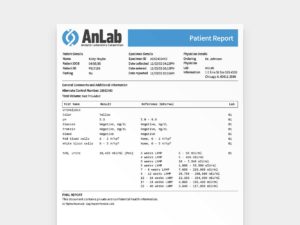
Pregnancy is an exciting period in a woman's life. The body undergoes numerous changes to support the growth and development of the baby. To ensure both mother and baby receive the essential nutrients needed for the baby’s development, many healthcare providers recommend taking prenatal vitamins. In this article, we will explore the importance of prenatal vitamins and their role in pregnancy.
Prenatal vitamins are specialized supplements designed for pregnant women. They contain a combination of vitamins and minerals crucial for the health of both the mother and the developing baby. These vitamins fill potential nutrient gaps in a woman's diet during pregnancy.

Ideally, women of childbearing age should consider taking prenatal vitamins before they become pregnant. Many pregnancies are not planned, so it is advisable for women who are sexually active to take prenatal vitamins. The neural tube, which becomes the brain and spinal cord, develops during the first month of pregnancy; perhaps before you even know you are pregnant.

Not all prenatal vitamins are created equally. When selecting a prenatal vitamin, consider the following factors:
Prenatal vitamins are not a substitute for a healthy, balanced diet. They are meant to complement a good eating plan. A diet rich in fruits, vegetables, whole grains, lean proteins, and dairy products can provide many of the essential nutrients needed during pregnancy. Prenatal vitamins are there to fill in potential gaps and provide that extra assurance that both mother and baby are getting what they need.
Before starting any vitamin or supplement regimen during pregnancy, it is essential to consult your healthcare provider. They can evaluate your specific nutritional needs and recommend the right prenatal vitamin for you. They can also provide guidance on maintaining a healthy diet throughout your pregnancy.
Prenatal vitamins are a valuable tool to ensure that both you and your baby get the essential nutrients needed during pregnancy. They play a vital role in preventing birth defects, supporting your baby's growth and development, and helping you stay healthy throughout pregnancy. They are not a substitute for a balanced diet. Always eat a variety of nutrient-rich foods. Always consult with your healthcare provider to make informed choices about your prenatal vitamin regimen.
This information is presented as a general guide to present information about prenatal vitamins. It is for informational purposes only. The information provided is not intended to be the only information available about prenatal vitamins. The material provided is not expected to be a substitute for advice or information from your physician or health care provider.
If you have any questions, concerns, fears, apprehensions, unease, or worry about prenatal vitamins contact your health care provider immediately.








ALL WARRANTIES OF ANY KIND WHATSOEVER EXPRESS, IMPLIED, AND STATUTORY, ARE HEREBY DISCLAIMED. ALL IMPLIED WARRANTIES OF MERCHANTABILITY AND FITNESS FOR A PARTICULAR PURPOSE ARE HEREBY DISCLAIMED. THE PRODUCTS SOLD, INCLUDING SONOGRAMS, ULTRASOUNDS, FAKE PREGNANCY DOCUMENTS, AND FAKE PREGNANCY TESTS ARE SOLD ‘AS IS’ BASIS.
THE SITE CANNOT AND DOES NOT CONTAIN [MEDICAL/ LEGAL/ FITNESS/ HEALTH/ OTHER] ADVICE. THE INFORMATION IS PROVIDED FOR PRANKS PURPOSES ONLY AND IS NOT A SUBSTITUTE FOR PROFESSIONAL ADVICE.
ACCORDINGLY, BEFORE TAKING ANY ACTIONS BASED UPON SUCH INFORMATION, WE ENCOURAGE YOU TO CONSULT WITH THE APPROPRIATE PROFESSIONALS. WE DO NOT PROVIDE ANY KIND OF MEDICAL/ LEGAL/ FITNESS/ HEALTH ADVICE. THE USE OR RELIANCE OF ANY INFORMATION CONTAINED ON THIS SITE, OR OUR MOBILE APPLICATION, IS SOLELY AT YOUR OWN RISK.
THIS WEBSITE DOES NOT PROVIDE MEDICAL ADVICE. THE INFORMATION, INCLUDING BUT NOT LIMITED TO, TEXT, GRAPHICS, IMAGES AND OTHER MATERIAL CONTAINED ON THIS WEBSITE ARE FOR PRANK PURPOSES ONLY. NO MATERIAL ON THIS SITE IS INTENDED TO BE A SUBSTITUTE FOR PROFESSIONAL MEDICAL ADVICE, DIAGNOSIS OR TREATMENT. ALWAYS SEEK THE ADVICE OF YOUR PHYSICIAN OR OTHER QUALIFIED HEALTH CARE PROVIDER WITH ANY QUESTIONS YOU MAY HAVE REGARDING A MEDICAL CONDITION OR TREATMENT AND BEFORE UNDERTAKING NEW HEALTH CARE REGIMEN, AND NEVER DISREGARD PROFESSIONAL MEDICAL ADVICE OR DELAY IN SEEKING IT BECAUSE OF SOMETHING YOU HAVE READ ON THIS WEBSITE.
THE PARTIES AGREE THAT ANY PRODUCT PURCHASED ON THE BABY MAYBE WEBSITE SHALL NOT BE USED FOR ANY PROPOSE OTHER THAN AS A PRANK. WITHOUT EXCEPTION NO BABY MAYBE PRODUCT SHALL BE PROVIDED/SUBMITTED TO ANY GOVERNMENTAL OR OTHER AGENCY, MEDICAL DOCTOR, ARBITER OF A DISPUTE, AS PROOF OF PREGNANCY, PAST OR CURRENT, OR TO CLAIM ANY BENEFIT FOR WHICH A PREGNANT WOMAN MAY BE ELIGIBLE, OR ENTITLED TO RECEIVE, BASED ON HER BEING PREGNANT. NO HIPAA PROTECTED PATIENT HEALTH INFORMATION CONNECTED TO ANY BABY MAYBE PRODUCT, IS INTENDED, OR CONVEYED, WITH RESPECT TO THIS SALE.
THE PARTIES AGREE THAT BABYMAYBE IS NOT RESPONSIBLE FOR ANY LIABILITY WHATSOEVER FOR DELAYS IN SHIPPING THE PRODUCT. THE PARTIES FURTHER AGREE THAT THE SOLE REMEDY FOR ANY SHIPPING DELAYS IS THE REFUND OF THE PURCHASER’S PAYMENT FOR THE PRODUCT.
THE PARTIES AGREE THAT THE FORUM FOR ANY LEGAL ACTION ASSOCIATED WITH THE SALE AND PURCHASE OF THE PRODUCT IS THE STATE OF ILLINOIS.